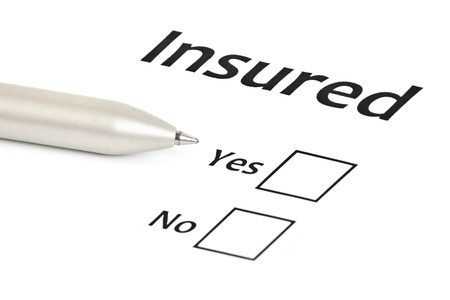Insurance is necessary, as well as confusing and sometimes complicated. Understanding the types of insurance available and the coverage that best serves your needs can be difficult to decipher. In some instance specific types of insurance are mandatory. To help simplify things here are three types of insurance you need.
Homeowner’s Insurance
Homeowner’s insurance protects property and structures on the property from damage and complete lose. This type of insurance also provides coverage for liability against accidents that happen on the property. Essentially, if you have a house fire and the home and personal items are destroyed, or if a tree limb falls on the house and damages the roof homeowner’s insurance will cover all or some of the cost. Each homeowner’s policy is different and only disasters listed in the policy are covered. In some instances if a guest at your home is injured your homeowner’s policy may cover some or all of their medical expenses.
Many mortgage lenders require a homeowner to carry homeowner’s insurance. It is often necessary to have a policy in place before a closing.
Auto Insurance
Most states require drivers to have auto insurance. This coverage will cover all or part of the cost to repair your car if you cause an accident. An auto insurance policy will also foot the bill for damage to other vehicles damaged in an accident you caused. Many auto insurance policies also provide roadside assistance packages for an additional fee.
Medical Insurance
Medical insurance can save a lot of money in terms of routine care and especially emergency care. Coverage is available through most employers. When coverage is not offered you can obtain coverage through the Affordable Care Act (ACA). Failure to secure medical insurance or a policy that does not provide Minimum Essential Coverage (MEC) will result in a penalty. The fee is calculated based on the total number of months you go without coverage and it paid when you file your federal income taxes.
Ensure You Have Adequate Coverage
Insurance protects your interests in the event of a problem. Lots of different types of insurance exist and there are different coverage options for each type that can make zeroing in on what you need a challenge. Ensuring you have homeowner’s, auto and medical insurance is the basic types of coverage you need. If you have questions about the type of insurance coverage you need or you are interested in setting up a policy call us at 865-922-3111 (local) or 800-624-3339 (toll free) or click here to contact us.
Series: What Kinds of Insurance Do You Need?
Part 1: 3 Types of Insurance You Need
Part 2: 3 Types of Insurance You Might Need
Part 3: 3 Types of Insurance You Probably Don’t Need






